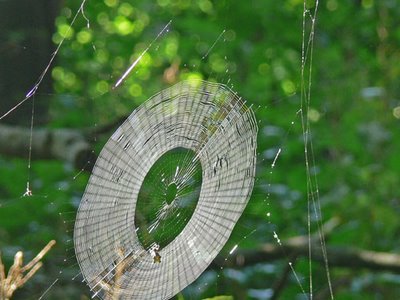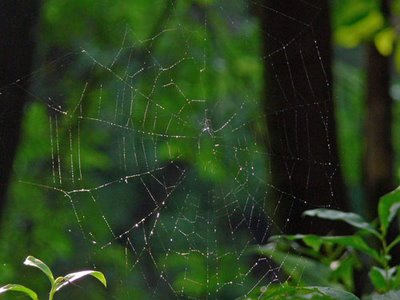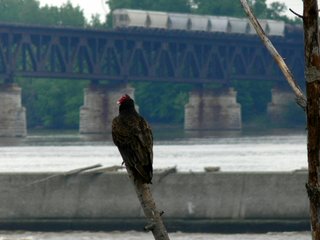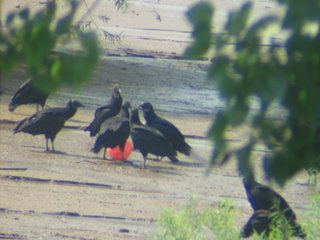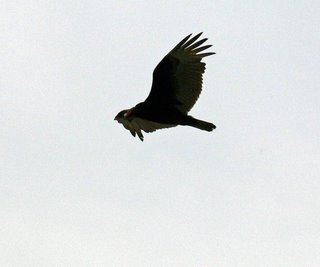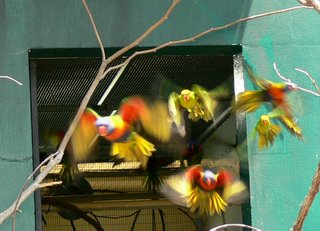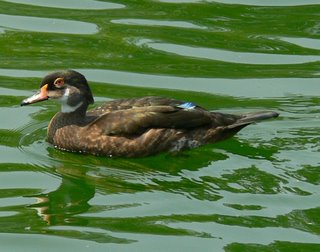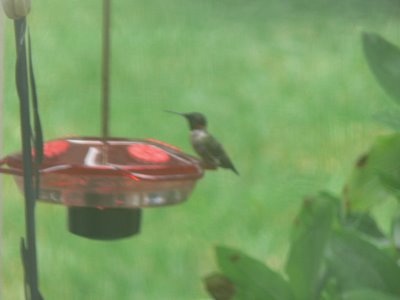 Look! Out in the yard! Is it a butterfly? Is it a giant bumble bee? Is it a (gasp) hummingbird, at long last?
No matter how early in the spring hummingbirds arrive in our area, we never see one until late July, when the butterfly bushes start to bloom. Even then, actually seeing a hummingbird is a matter of luck, despite all the red flowers we planted and the various feeders. Getting a photo of one is even trickier.
Here is the one photo I managed to take. The quality is not very good. It looks kind of fuzzy and out of focus. That might be caused by shaking hands when releasing the shutter, bad focus since I was in a hurry lest the bird fly away, or dirty windows between camera and bird. How to cure these problems, she asks herself? And where to set up a camera to get a good shot without any of these issues?
Look! Out in the yard! Is it a butterfly? Is it a giant bumble bee? Is it a (gasp) hummingbird, at long last?
No matter how early in the spring hummingbirds arrive in our area, we never see one until late July, when the butterfly bushes start to bloom. Even then, actually seeing a hummingbird is a matter of luck, despite all the red flowers we planted and the various feeders. Getting a photo of one is even trickier.
Here is the one photo I managed to take. The quality is not very good. It looks kind of fuzzy and out of focus. That might be caused by shaking hands when releasing the shutter, bad focus since I was in a hurry lest the bird fly away, or dirty windows between camera and bird. How to cure these problems, she asks herself? And where to set up a camera to get a good shot without any of these issues?
First, wash the windows in the kitchen door, in case dirty glass is the actual problem. Then put the camera on a tripod and aim it at the feeder and focus it before any birds come. So far so good. However, in the afternoon, the windows reflect the afternoon light, tending to wash out any photo taken through the window. If I move the glass aside, the screen still makes for fuzzy pictures. Also, these windows aren't one way glass, and when I rise to turn the camera on as a hummer approaches the feeder, they see me move, and dart away. Would a shutter release cable help? But the waiting until a bird comes is the hardest part! How do those professional photographers wait around for hours until the bird comes to them? I'll keep trying. They won't be leaving for several weeks yet, so there still may be hope for me to get a clear shot.
